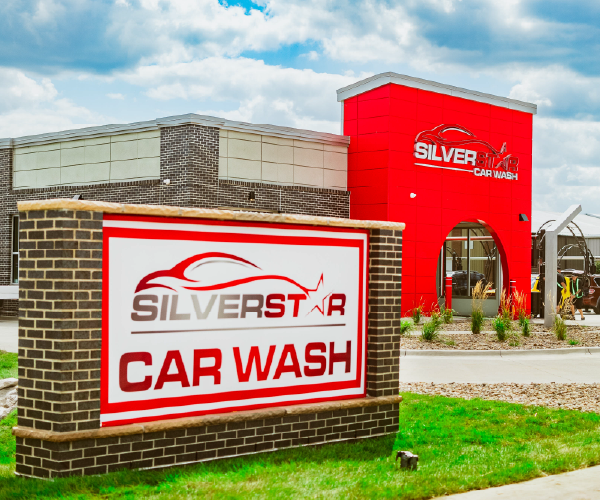
How to Keep the Best Employees
April 1, 2013
6 minute ReadThere’s not a single successful business that doesn’t have at least some productive, hard-working employees. If you’ve been in business for any length of time, you know the true value of having the right employees. Good talent is hard to find. People can be whoever you want them to be in a short interview. They can answer each question with the right response and come across with energy and enthusiasm. It’s a complete surprise when shortly after hiring these promising individuals we find them habitually late, apathetic towards customers, having little energy, and in general being poor performers. That’s why, when you get good employees, you need to make certain they have the tools they need to do the job effectively and that they are treated with fairness and respect. People, both customers and employees, are your greatest assets. Machinery and equipment are secondary. Even the best equipment won’t make up for surly employees and the lack of customers. Too many car wash owners may spend more time choosing and maintaining equipment than they do employees. This is a big mistake that can cost you in ways that will bring serious harm to your business.
How do we keep good talent on board? If your people skills, including good communication, are not your strongest assets, there are things you can do to improve. Let’s start with communication. If you find yourself often talking at people rather than with them, change your approach. Ask yourself, if someone else spoke to you the way you just did to an employee, how would you react? You don’t want your speech to be seen as constantly combative, overpowering or negative. Only speaking to employees when you have a complaint or criticism will ensure a negative reaction from them. Who wants to talk to someone who only speaks to them when they find fault? When you find yourself needing to correct an employee’s negative behavior, try the sandwich approach. Find two good things they do and sandwich the critique in between them. Don’t go overboard on the positives so that the critique becomes lost like a micro-thin piece of ham among two thick slices of bread. Make certain they know what’s wrong, but approach it the right way — fairly balanced. People will listen better if they feel you haven’t ignored their positives. Feeling “picked on” will only result in employees turning off and tuning out your “airwaves.” Of course, some people are a little on the sensitive side and feeling picked on is the order of their day. In that case, preface your critique with “this is about your behavior, not your character.” Overly sensitive people are tougher to deal with, but they just require a little more skill in your approach.
Gossip is found everywhere and in every business. Left unchecked, it can hurt relationships and lead to horrible work environments where people hate to spend time. To curtail such a hostile atmosphere in your business, keep people informed, keep people busy and have an open-door policy. People have a greater tendency to invent a complete story when they have a very short one. The lack of info often causes people to be creative with explanations and theories. As for the personal kind of gossip that harms employees’ reputations, nip it immediately. Don’t allow one busy body to destroy the harmonious atmosphere you’ve worked hard to cultivate. Operate by the golden rule, and tell employees you won’t tolerate disruptive and destructive behavior to undermine the business. After all, if people are our greatest assets, we have to keep them positive. We don’t want to lose the best employees and end up stuck with those who “go about seeking whom they can devour” with their bad attitude and vicious gossip.
Maintaining good employees so they don’t seek employment elsewhere is essential. We have the ability to hold onto great employees and keep them from feeling unappreciated. Knowing what not to do is as essential as knowing what to do. Commission and omission must be balanced. The following is a list of things that contribute to losing employees.
The biggest factors that cause high employee turnover:
• Slow promotions.
• Poor management.
• Uncaring, non-sympathetic supervisors.
• Work load unevenly distributed.
• Lack of communication between employee and supervisor.
• Low pay rate.
• Failure to ask for input from workers, feel they have no voice.
The biggest factors that inspire loyalty:
• Greater promotion opportunities.
• An empathetic work environment.
• Established policies and procedures that are consistent for all employees.
• Rewards and recognition given for good work.
• A trusting work climate.
• A place where creativity is inspired and encouraged.
• Opportunities for pay increase.
• All are asked to do their fair share.
Conflict among human beings is a natural situation. While much conflict can be avoided, if handled properly, some conflict is essential to birthing constructive change. Much of the way you approach conflict at work is based upon how conflicts were settled in your home while growing up.
Conflicts at work can be based on personalities, differences of approach to a matter, viewpoint, failure to carry out duties, or position. Conflict is normal and expected, but it becomes destructive when it’s allowed to become “personal.” Once any name-calling begins, no matter how subtle, the stakes change and people can become agitated on a higher level. Keeping personal references out of the mix is key to coming up with viable solutions. Don’t let conflict between two employees smolder while you hope they will work it out. Stop it before it’s allowed to fester and cause division among other staff members.
14 Things That Motivate Employees
1. Empowering your staff by keeping them informed.
2. Teaching your people to be proactive not reactive.
3. Keeping communication lines OPEN.
4. Periodically giving an impromptu evaluation — don’t wait until the performance review when it’s too late to change.
5. Being personable but professional.
6. Making sure workers are well-trained.
7. Never taking hard workers for granted. Recognize good work and say it.
8. Giving employees a chance to improve.
9. Giving workers room to make mistakes — don’t hover over them.
10. Handling conflicts as soon as they arise rather than waiting until they escalate.
11. Not allowing any worker to undermine the credibility of others through vicious gossip.
12. Praising in public — correcting in private.
13. Taking responsibility for your own mistakes; don’t be afraid to say you’re sorry!
14. Giving the same qualities you ask for i.e. respect, understanding, etc.
Keeping good talent needn’t be a tough task. We do need to make it a priority. Your car wash is your investment. The people who work for you are a major part of your investment. They help to create an atmosphere where customers feel valued and want to return. Your customers create your bottom line; it all intertwines. It’s a three-fold equation: management, employees and customers. Anyone left out, and your asset goes down the drain. Remind your employees that you appreciate their hard work and dedication to excellence and that it won’t go unrewarded. Tell them what’s expected, and don’t keep changing the game plan on them. Be fair. What you say to one you should say to all. Don’t have obvious favorites and don’t treat people differently; one gets respect and the others don’t. Be consistent, reliable, honest, fair and approachable; demand the same from your employees. Never mirror negative behavior. If you practice what you preach you have moral authority and can display all the character you want to see reflected in your staff.







